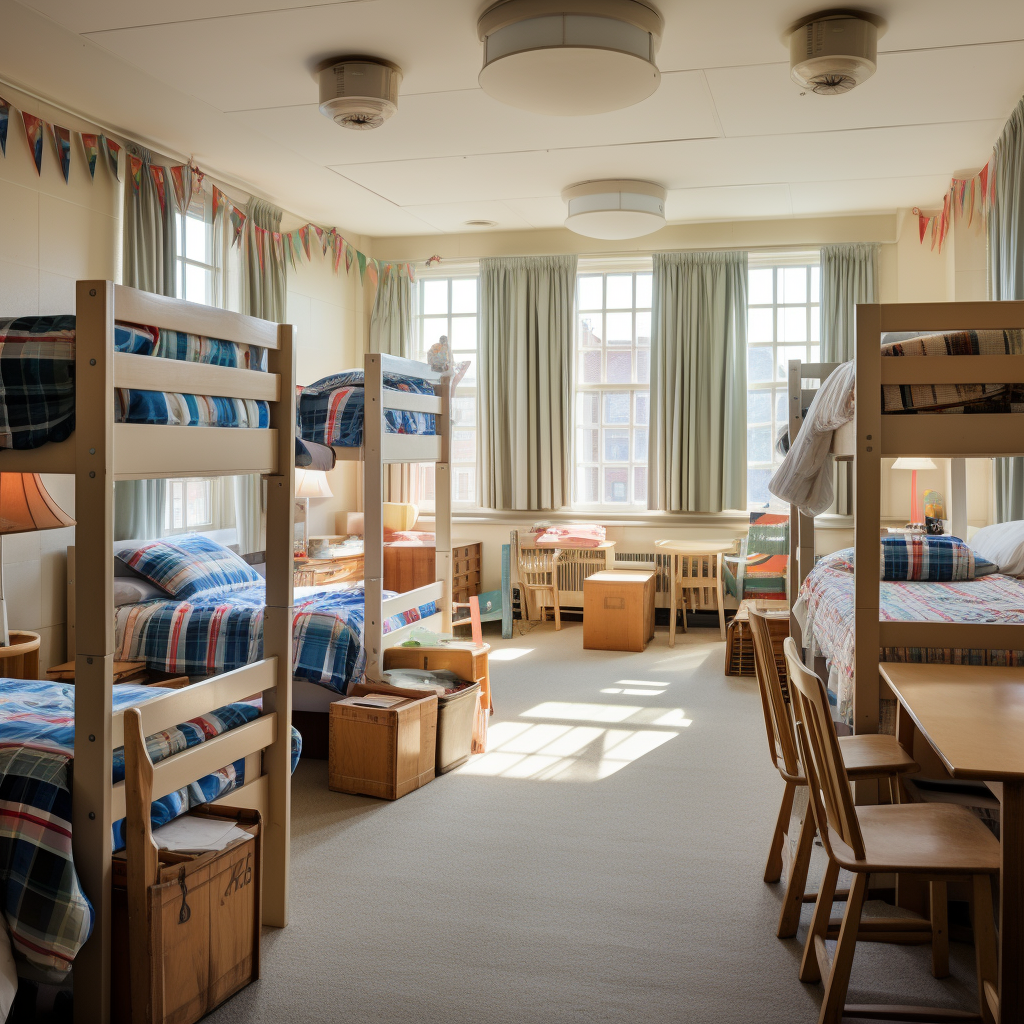Introduction
Choosing a college is an exciting time, but it can also be stressful. One of the most important factors to consider is where you will live. At Fisher College, there are several dorms to choose from, each with their own unique features and benefits. In this guide, we will explore the dorms at Fisher College and help you decide which one is right for you.

Location and Layout of Dorms
Fisher College is located in the heart of Boston, Massachusetts, which means that most of the dorms are located in the surrounding area. The main dorms are St. Germain Hall, 118 Beacon Street, and 10 West. All of these dorms are within walking distance of the main campus.
St. Germain Hall is the largest dorm and is located in the heart of the Back Bay neighborhood. It is a 14-story building with a total of 472 beds. The rooms are designed for two to four students and come with a private bathroom, bed, desk, chair, and dresser. The dorm also has a kitchen, laundry facilities, and a fitness center.
118 Beacon Street is a small dorm that is located in a historic brownstone on Beacon Street. It has a total of 40 beds and is designed for upperclassmen. The rooms are designed for one to three students and come with a private bathroom, bed, desk, chair, and dresser. The dorm also has a kitchen, laundry facilities, and a study lounge.
10 West is a brand new dorm that opened in 2020. It is a 16-story building with a total of 180 beds. The rooms are designed for one to two students and come with a private bathroom, bed, desk, chair, and dresser. The dorm also has a kitchen, laundry facilities, a fitness center, and a study lounge.
Amenities and Features
Each dorm at Fisher College has its own unique set of amenities and features. Here is a breakdown of what you can expect at each dorm:
St. Germain Hall:
- Fitness center
- Study lounges
- Kitchen with stove, oven, microwave, and refrigerator
- Laundry facilities
- Vending machines
- Rooftop terrace with views of the city
118 Beacon Street:
- Study lounge
- Kitchen with stove, oven, microwave, and refrigerator
- Laundry facilities
- Vending machines
10 West:
- Fitness center
- Study lounge
- Kitchen with stove, oven, microwave, and refrigerator
- Laundry facilities
- Vending machines
- Outdoor patio with views of the city
Roommates and Room Options
At Fisher College, you have several options when it comes to roommates and room types. St. Germain Hall and 118 Beacon Street offer traditional double rooms, triple rooms, and quad rooms. 10 West offers both single rooms and double rooms.
When it comes to roommates, you can either request a specific roommate or be paired with a roommate based on your preferences. If you don’t have a roommate in mind, Fisher College has a roommate matching system that will pair you with someone who has similar interests and habits.
Cost and Financial Aid
The cost of living in a dorm at Fisher College varies depending on the dorm and the type of room you choose. For the 2022-2023 academic year, the cost of living in St. Germain Hall ranges from $15,600 to $19,050 per year. The cost of living in 118 Beacon Street ranges from $14,500 to $16,400 per year. The cost of living in 10 West ranges from $18,000 to $22,050 per year.
It is important to note that financial aid is available to help cover the cost of higher education for students who are struggling to afford it. Many universities and colleges offer a variety of financial aid options, including scholarships, grants, work-study programs, and loans. These options can help make college more accessible and affordable for students from a wide range of financial backgrounds.
Scholarships are often awarded based on academic merit, athletic ability, or other talents or achievements. They are typically offered by the university or external organizations and do not need to be repaid.
Grants, on the other hand, are typically awarded based on financial need and do not need to be repaid. These grants may come from the federal government, state government, or the university itself.
Work-study programs provide students with part-time jobs on campus, allowing them to earn money to pay for their education while gaining valuable work experience. These jobs may be related to the student’s field of study, or they may be more general, such as working in the campus bookstore or cafeteria.
Loans are another option for students who need financial assistance. While loans do need to be repaid, they often come with lower interest rates and more flexible repayment plans than private loans.
Conclusion
It is important for students to explore all of their options for financial aid and to apply early to ensure that they receive the maximum amount of aid possible. Many universities have financial aid offices that can help students navigate the application process and find the best options for their individual needs.
